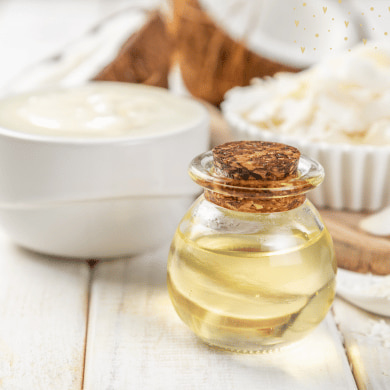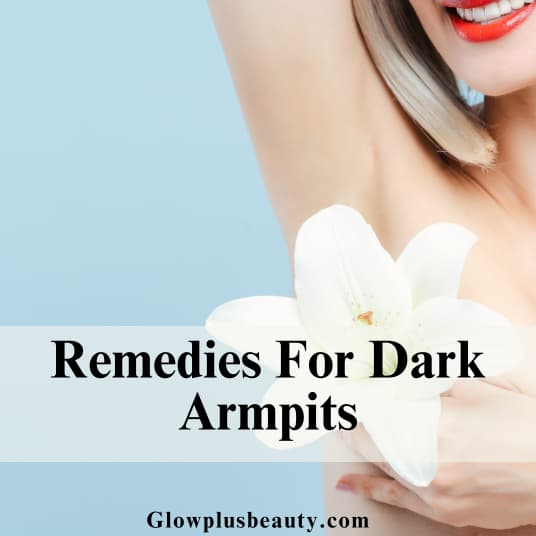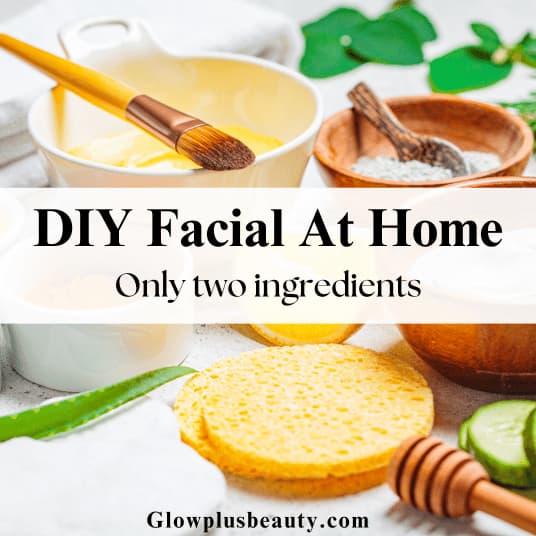Triamcinolone Acetonide Cream For Dark Spots
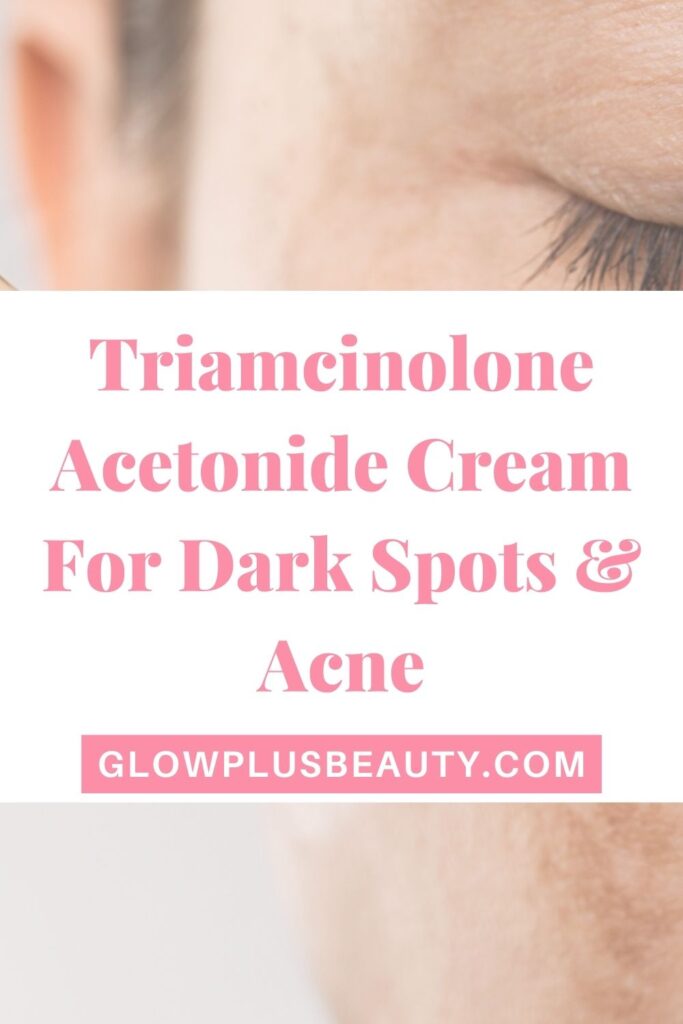
Triamcinolone acetonide is a corticosteroid that is commonly used in the medical field.
It has strong anti-inflammatory properties and immuno-suppressive properties that effectively treat various skin conditions like eczema, psoriasis, itching, swelling, inflammation, and allergies.
Many topical Steroids have been used in treating acne and hyperpigmentation in the medical field since they are very effective in showing progressive results.
But the question is, is triamcinolone acetonide (also a steroid drug) used for acne and dark spot? and most importantly,
Are they safe to use topically?
In this article, I will explore and answer these questions with detailed information. So, that you can better understand them.
After reading this post, you will be able to wise enough to figure out whether you use triamcinolone acetonide cream for dark spots and acne or not.
Without further delay, let’s get started.
What Is Triamcinolone Acetonide
Triamcinolone Acetonide is simply a synthetic steroid drug that is a part of the corticosteroids family, similar to the hormone cortisol, which our body naturally produces.
How Triamcinolone Acetonide Cream Works
When our body’s immune system overacts, corticosteroids are mostly used to suppress the immune system by blocking the release of various substances known as prostaglandins that generate in the body that contribute to inflammation and allergic reactions.
Simply, can be said, Triamcinolone Acetonide is an anti-inflammatory steroid drug that decreases swelling in the body by suppressing the immune system.
Triamcinolone Acetonide is available in different forms to suit specific treatment requirements.
One common form is creams and ointments, which are applied topically to the skin. Ointments are considered strongest than other forms because they can penetrate deeply into the skin.
They are useful in managing skin conditions and provide relief to specific areas.
Another form is a nasal spray, used for treating allergic rhinitis and other nasal allergies.
Triamcinolone Acetonide is also available as an injectable solution, which can be injected directly into joints, soft tissues, or muscles to treat eczema and other serious skin conditions.
Triamcinolone Acetonide Cream For Dark Spots & Acne
Side effects of triamcinolone
There are many adverse reactions including :
- Severe mood swings or depression
- High blood pressure
- Muscle weakness
- Dizziness
- Blurred vision
- Headache
- Fast heart rate
- Acne
- Weight gain
Triamcinolone Acetonide Cream For Acne
For deeper understanding- It is essential to know the underlying cause of acne vulgaris.
What is acne vulgaris:
Well, Acne is a common skin concern that is characterized by the formation of pimples, blackheads, whiteheads, cysts, and nodules on the face, neck, chest, back, and shoulders.
Basically, Acne occurs when the hair follicles in the skin become clogged with oil and dead skin cells.
Some bacteria are normally present on the skin, but when trapped in a clogged follicle, they can multiply and finally lead to inflammation.
Here, you have to understand the main theme,
We already know that – acne happens by the combination of clogged hair follicles, dead skin cells, and overproduced sebum.
On the other hand,
“Corticosteroids are frequently employed to decrease inflammation by inhibiting immune suppression.. Their primary function is to inhibit overacts sensitivity and are not directly involved in improving acne or reducing its severity.”
However, Triamcinolone Acetonide Cream is not used to treat acne as they are not effectively treat breakouts.
While inflammation is commonly associated with acne, the use of topical corticosteroids, such as triamcinolone acetonide, is not an effective treatment.
Triamcinolone Acetonide Cream For cystic Acne
A cystic acne is a severe form of acne that is characterized by the development of large, deep, painful, and inflamed nodules or cysts beneath the skin.
Treating cystic acne can be challenging, and it can be treated with medications, such as antibiotics or isotretinoin, to help control the inflammation and reduce the severity of breakouts.
Topical treatments, such as retinoids or benzoyl peroxide, may also be prescribed to target the acne lesions directly.
Now, when it comes to treating cystic acne, using topical corticosteroids isn’t really effective.
But In some cases;
By injecting corticosteroids into the acne lesion, the medication helps calm down the inflammatory response. This reduces the size of the bump, decreases redness, and relieves discomfort. And some times, corticosteroids can even make a large and painful acne cyst shrink significantly within a few days.
It’s important to note that corticosteroid injections are typically used for specific acne lesions rather than as a general treatment for acne.
Only your healthcare professional can determine if corticosteroid injections are suitable for your acne and administer them safely.
Otherwise, you are not allowed to use them.
Instead of using triamcinolone acetonide, you can try some alternatives way to control acne
By incorporating a daily simple and effective skincare routine you can achieve and maintain healthy skin.
You only need four simple steps instead of following a lengthy 10-step skincare routine that may lead to irritation and inflammation of the skin.
Check out: The best Skincare Routine For Acne-Prone Skin
Number 1. Cleanse
Regular cleansing of your face can effectively unclog pores, preventing the formation of new blemishes.
Choosing the right cleanser is crucial for acne-prone skin.
Look for a gentle cleanser that is specifically formulated for acne-prone or sensitive skin.
Avoid harsh cleansers as they strip away too much oil, causing the skin to produce even more oil to compensate. This can lead to further breakouts and irritation.
Opt for a non-comedogenic cleanser that won’t clog your pores.
Check Out: 7 Best Cleansers For Acne Prone Skin
Number 2. Exfoliate:
Using an exfoliator can slough off your dead skin cells and reveal smoother and healthier skin.
Use salicylic acid as an exfoliator and use it twice or thrice a week.
Salicylic acid is really great to treat acne-prone skin, It has anti-inflammatory and anti-bacterial properties that decrease the growth of acne-causing bacteria and reduce inflammation.
Although you can add exfoliate part into your cleansing step. Choose a cleanser that contains salicylic acid.
Separate exfoliation is also effective but pay attention to the cleanser doesn’t contain acne ingredients like salicylic acid and benzoyl peroxide. Because an overdose of these substances can make your acne worse.
Number 3. Spot treatment:
Spot treatment involves applying a targeted treatment to individual pimples or acne.
This method is used to address specific areas of concern rather than treating the entire face. The spot treatment typically contains active ingredients like benzoyl peroxide, salicylic acid, adapalene, or sulfur, which help to reduce inflammation, kill bacteria, and unclog pores.
They can easily be accessible over-the-counter in the form of different solutions like cream, gel, or lotion.
You have the option to buy any of them, based on what suits you best.
Number 4. Moisturize:
Moisturizing is essential and should not be overlooked. It plays a vital role in protecting your skin barrier.
Opt for a gentle, lightweight moisturizer with a gel-based formula. Look for moisturizers that are enriched with hydrating ingredients such as ceramides, hyaluronic acid, and soothing components like Centella Asiatica and green tea.
It’s important to choose a moisturizer that is non-comedogenic, meaning it won’t clog your pores.
Check Out: 10 moisturizers for oily and acne prone skin
Triamcinolone Acetonide For Dark Spots & Acne Scars
As I mentioned earlier, Triamcinolone acetonide is commonly used to treat different skin concerns by reducing sensitivity caused by overacting the immune system.
However, when it comes to addressing acne scars and dark spots, it might not be the best option.
That’s because acne scars and dark spots are often caused by damaging deeper layers of the skin.
In this case, collagen can be disrupted or increased pigmentation. Triamcinolone acetonide mainly works by calming down the immune response and reducing inflammation, which may not directly address the root causes of these skin issues like dark spots and acne scars.
To deal with acne scars and hyperpigmentation, there are several treatment options available like laser therapy, chemical peels, and micro-needling, which you can try.
Or you can apply topically specialized creams or serum with ingredients such as retinoids, hydroquinone, azelaic acid, niacinamide, alpha arbutin AHA, and BHA.
So, while triamcinolone acetonide can be helpful for certain skin conditions, it’s generally not the go-to option for dealing with acne scars and dark spots.
Okay, Let me tell you one thing,
One study has shown:
A group of doctors conducted an experiment on hyperpigmentation, which causes dark patches on the skin. They tested a treatment involving the use of three substances:
Hydroquinone 4%, retinoic acid 0.05%, and triamcinolone acetonide 0.25%. The patients applied these substances twice a day for a period of 6 weeks.
The experiment included 15 patients. Among three patients who had lost skin pigmentation due to surgery, all of them experienced moderate repigmentation, meaning their skin color improved.
Out of the 12 patients with dark patches on their skin, 4 patients saw a big improvement, 5 patients saw some improvement, and we don’t know what happened to the other 3 patients because they didn’t finish the study.
Overall, 6 out of the 15 patients were very happy with the treatment they got because it made their skin noticeably better.
Please Note that:
These medications are safe and necessary in certain medical situations due to the lack of acceptable alternatives.
Products try for hyperpigmentation and acne scars:
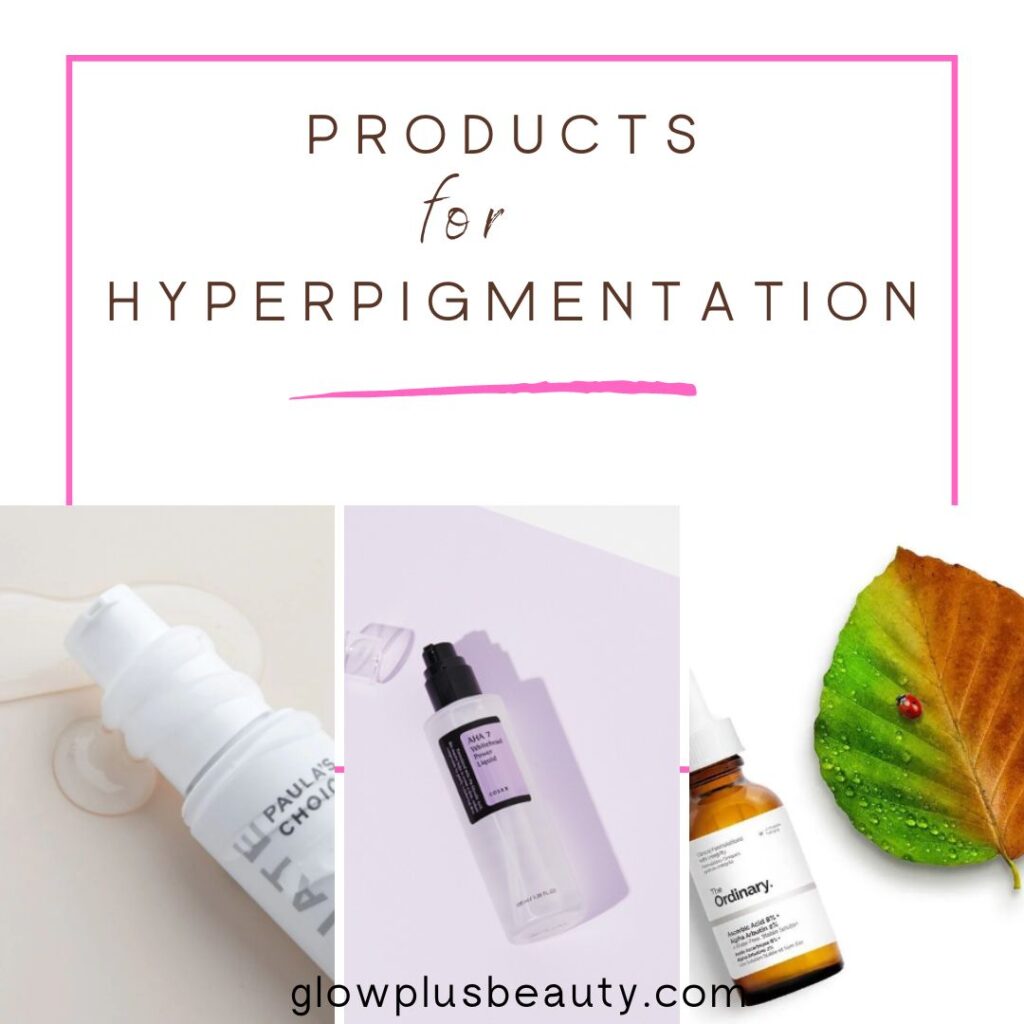
The Ordinary Ascorbic Acid 8% + Alpha Arbutin 2%
The key ingredients of this product are ascorbic acid and alpha arbutin, making it perfect for skin brighteners.
Ascorbic acid is a form of vitamin C and alpha arbutin both have antioxidant properties. Both of these substances play a significant role in reducing melanin production.
Paula’s Choice Skin Perfecting 8% AHA Gel Exfoliant
Paula’s Choice Skin Perfecting 8% AHA Gel Exfoliant is a leave-on exfoliator that contains 8% glycolic acid and hyaluronic acid a moisturizing agent.
Glycolic acid can help to fade areas of hyperpigmentation, such as dark spots, sun spots, and melasma.
Glycolic acid helps to remove dead skin cells gently and makes your skin feel smoother.
Therefore, Other exfoliators can dry out your skin while glycolic acid prevents dryness and keep your skin hydrated.
COSRX AHA 7 Whitehead Power Liquid
Cosrx is a well-known Korean brand that offers an amazing product called COSRX AHA 7 Whitehead Power Liquid.
You can try to fade away hyperpigmentation as it also contains glycolic acid in it.
COSRX AHA 7 Whitehead Power Liquid contains 7% glycolic acid which is slightly lower than Paula’s Choice Skin Perfecting 8% AHA Gel.
However, If you have sensitive skin and want to try a product with a lower concentration of AHA, you can give it a try.
Check Out: 7 Best Products For Hyperpigmentation
Some Frequently Asked Question Related To Triamcinolone Acetonide Cream For Dark Spots & Acne
Can I use triamcinolone acetonide cream on active acne lesions?
No, Triamcinolone acetonide cream is not intended for active acne. It is more effective in reducing inflammation and fading dark spots.
Does Triamcinolone Acetonide Cream Lighten Skin?
No, It does not have a direct skin-lightening effect as its main function is to suppress the immune and reduce inflammation associated with skin conditions.
Final Thoughts On Triamcinolone Acetonide Cream For Dark Spots & Acne
Triamcinolone acetonide cream is not typically recommended for treating acne and dark spots and you should not be using it on acne and dark spot.
Prolonged use of Triamcinolone acetonide cream can cause severe side effects like skin thinning, atrophy, and hair growth.
For acne treatment, it’s generally more beneficial to use products containing ingredients like benzoyl peroxide, salicylic acid, or retinoids, which can help unclog pores, reduce oil production, and fight bacteria.
These ingredients are specifically formulated to address acne-related issues.
Similarly, for dark spots, treatments like topical retinoids, hydroquinone, or azelaic acid are commonly recommended.
These ingredients can help lighten hyperpigmentation and promote a more even skin tone.
Finally, It’s important to consult with a dermatologist who can assess your specific skin concerns and recommend the most appropriate treatment plan and help you to get rid of the root problem.

